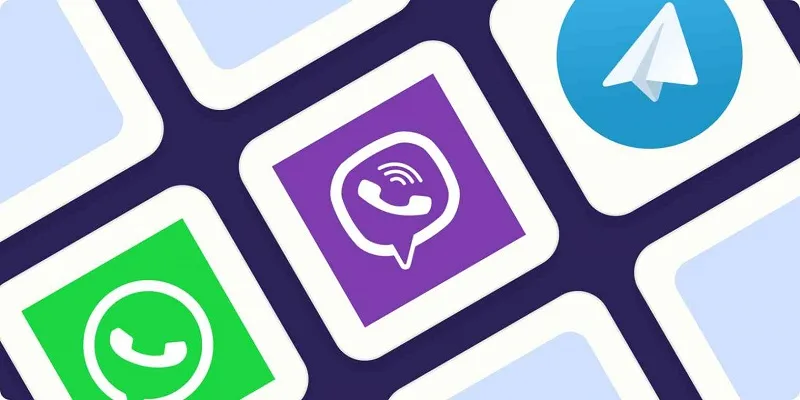Top 3 Messaging Apps in 2024

As we navigate an increasingly digital world, the importance of effective communication tools becomes more apparent. Messaging apps have risen not just as a utility but as essential platforms for personal, professional, and social interaction. In this article, we explore the reasons behind their rising popularity, dissect the need for diverse messaging platforms, and review the top three messaging apps as of now.
Why Messaging Apps Are Gaining Popularity
Messaging apps have become more popular due to their ability to provide instant communication across any distance. With the rise of remote work and globalisation, these apps serve as vital tools for keeping in touch with colleagues, friends, and family. They offer features such as text messaging, voice and video calls, file sharing, and more, all of which are secured with end-to-end encryption to protect users’ privacy.
The Need for Multiple Messaging Platforms
No single messaging app meets all user needs, which is why variety is crucial. Different apps cater to different demographics and geographies, offer varying levels of security, and support distinctive features like payment integration, public channels, or enhanced multimedia sharing. This diversity ensures that users can choose an app that best fits their personal or professional communication style and requirements.
Each app also has its own approach to user interface and usability, which can be a major deciding factor for users. Furthermore, network effects play a significant role; the more people use an app, the more likely new users will adopt the same app to easily connect with their community.
Telegram: Features and Flexibility
Telegram stands out for its emphasis on privacy and speed. Launched in 2013, it offers a suite of features including cloud-based messaging, large group chat capabilities, and strong end-to-end encryption in secret chats. Its API and bot platform encourage creative custom functionalities tailored to individual or business needs.
Users appreciate Telegram for its minimalistic interface and its ability to handle large volumes of messages and media without significant impact on device performance. It also allows for syncing across all devices, ensuring that messages and files are accessible anywhere, at any time.
WhatsApp: Widespread Adoption
WhatsApp, owned by Meta, is arguably the most popular messaging app globally, thanks to its user-friendly interface and widespread adoption. It offers straightforward, reliable messaging and calling and is especially favoured in regions like Europe, Latin America, and India.
WhatsApp ensures security with end-to-end encryption and provides features such as voice messages, shareable media, and document sharing. It has also integrated payment options in certain countries, making it a versatile tool for personal and small business communication.
Viber: Rich in Features
Viber is often praised for its audio and video call clarity and a wide range of additional features like Viber Communities, stickers, and public accounts. It provides end-to-end encryption and allows for creating large group chats, making it popular in Eastern Europe and parts of Asia.
While it may not be as widely used as WhatsApp or Telegram, Viber continues to hold its own by offering robust functionality and maintaining a loyal user base who prefer its specific services and regional features.

Summarizing the Messaging App Landscape
In conclusion, the choice of messaging app largely depends on personal preference, specific needs, and geographical location. Telegram offers flexibility and a high degree of customization, WhatsApp provides universal ease of use and accessibility, while Viber offers unique features appealing to its dedicated users.
The diversity among these top apps shows that the messaging app market is not about one-size-fits-all but about finding the right fit that corresponds to individual user demands and cultural nuances. As digital communication continues to evolve, these apps play a pivotal role in shaping how we connect, communicate, and interact every day.



